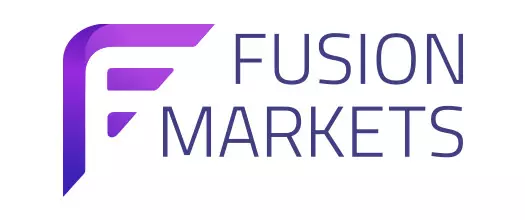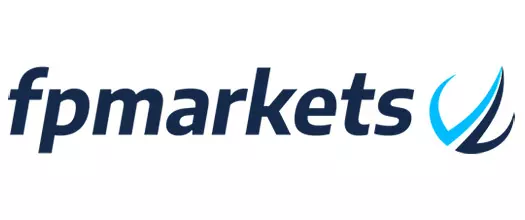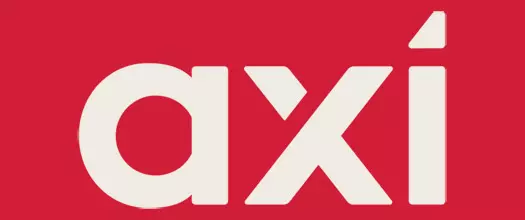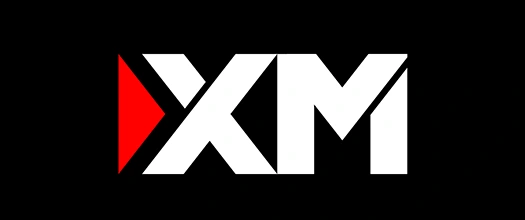Our team of expert traders tested a great many regulated brokers for Dow Jones trading to compile this toplist of the best among them. Every platform providing CFD trading on the Dow Jones Index received a quality score based on several factors, including Trustpilot rating, regulation, fees and commissions, available software, customer service, and more.
 Fusion Markets74-89% of retail's CFD accounts lose money
Fusion Markets74-89% of retail's CFD accounts lose money FP Markets73.85% of retail investor accounts lose money
FP Markets73.85% of retail investor accounts lose money Global Prime74-89% of retail CFD accounts lose money
Global Prime74-89% of retail CFD accounts lose money Pepperstone75.5% of retail investor accounts lose money
Pepperstone75.5% of retail investor accounts lose money AxiThe vast majority of retail client accounts lose money
AxiThe vast majority of retail client accounts lose money XM Group72.82% of retail investor accounts lose money
XM Group72.82% of retail investor accounts lose money
Top 10 Dow Jones Trading Brokers
In the dynamic realm of index trading, it is of utmost importance to find a reputable and competent Dow Jones trading broker where you can speculate on index price movements via CFDs, futures, options, spread betting, and ETFs. TradingPedia picked 10 of the best index brokers in the industry and reviewed each of them, so keep on reading.
- 1. AvaTradeMin Deposit$100Fees
- Overnight fees of -0.0006% (sell) and -0.0266% (buy)
- No deposit and withdrawal fees
- A $50 monthly inactivity fee
CommissionsNone for index CFDsSpread2.0 over-marketLeverage EU1:20 (1:200 for professional traders)Leverage non-EU1:200CFDs are complex instruments and come with a high risk of losing money rapidly due to leverage. 71% of retail investor accounts lose money when trading CFDs with this provider. You should consider whether you understand how CFDs work and whether you can afford to take the high risk of losing your money.Established in 2006, AvaTrade has earned the reputation of a trusted online broker that offers a diverse selection of trading platforms, rich educational content, and over 1,000 tradable markets. Over 30 indices are available through CFDs, with customers facing a choice of several popular platforms like MT4 and MT5. The most popular indices on AvaTrade include the DJIA, S&P 500, DAX 30, and FTSE 100, among others. The broker requires a minimum deposit of $100 and offers leverage of up to 1:200 to retail customers from specific jurisdictions.
As stated on AvaTrade’s website, there are no commissions for CFD trading as spreads cover all associated trading costs. Spreads for the Dow Jones average 2.0 over-market. Leveraged positions held open overnight incur swap charges but these are subject to change over time. The broker charges no fees on deposits and withdrawals but traders have a $50 monthly fee deducted from their balance after three months of inactivity. Accounts left inactive for over a year incur administrative monthly fees of $100.
AvaTrade strives to facilitate as many traders as possible, providing them with a choice from several proprietary platforms on top of MT4 and MT5. Mobile users can take advantage of AvaTradeGO, while AvaSocial and AvaOptions are geared toward the needs of copy and options traders, respectively.
- 2. eToroMin Deposit$50 ($1 for the US and $10 for the UK)Fees
- Overnight fees of -$0.6225883 (sell) and -$10.67142156 (buy)
- No deposit and withdrawal fees
- A $10 monthly fee after 12 months of inactivity
- A $5 fee on withdrawals
CommissionsNone for index CFDsSpread6.0 pointsLeverage EU1:20 (major indices); 1:10 (non-major indices)Leverage non-EU1:100 (major indices); 1:10 (non-major indices)51% of retail investor accounts lose money when trading CFDs with this provider.You should consider whether you understand how CFDs work, and whether you can afford to take the high risk of losing your money.Since 2007, eToro has been a multi-licensed broker providing customers with an easy-to-use platform, copy trading services, and an extensive range of over 7,000 financial markets. The company has been constantly expanding its portfolio to accommodate traders from all walks of life. The brokerage firm holds licenses issued by reputable authorities like the Cyprus Securities & Exchange Commission (CySEC), the Financial Conduct Authority (FCA), and the Australian Securities and Investments Commission (ASIC).
The minimum deposit requirements at eToro are country-specific, ranging from $1 in the US to $50 for most other jurisdictions. Clients from the UK must comply with a $10 minimum deposit limit.
The broker enables clients to trade 18 popular indices, including Dow Jones (US30), Nikkei 225, and FTSE 100. If you are not yet confident in your expertise, you can go through the detailed DJIA trading guide before registering on eToro’s proprietary platform. It supports 19 languages and is compatible with desktop and mobile devices via free native apps for Android and iOS.
Last but not least, eToro provides industry-leading copy trading services, allowing inexperienced clients to harness the proficiency of top-performing traders. Replicating their trades in your portfolio is free of extra charges.
- 3. XM GroupMin Deposit$5Fees
- No deposit and withdrawal fees
- A $5 monthly fee after 90 days of inactivity
CommissionsNo commissions on equity index CFDsSpread- 4.33 for US30Cash
- 9.16 for futures CFDs on US30
Leverage EU1:20 (major indices), 1:10 (non-major indices)Leverage non-EU1:500CFDs are complex instruments and come with a high risk of losing money rapidly due to leverage. 73.03% of retail investor accounts lose money when trading CFDs with this provider. You should consider whether you understand how CFDs work and whether you can afford to take the high risk of losing your money.XM is a truly global online broker with 10+ million clients from over 190 countries and customer support in 20+ languages. It holds licenses issued by several regulatory bodies, including the Cyprus Securities and Exchange Commission (CySEC), the Australian Securities and Investments Commission (ASIC), and the Belize Financial Services Commission (FSC).
The brokerage provides competitive prices for over 1,000 financial instruments clients can trade on MT4 and MT5. The two platforms perform seamlessly on desktop and mobile devices running on macOS, Windows, iOS, and Android. Trading in your browser without installing additional software is also an option.
XM customers can choose from three account types, with Standard and Zero accounts requiring minimum deposits of $5. Share accounts have a considerably higher minimum deposit requirement of $10,000. Standard accounts facilitate commission-free trading at the expense of slightly higher spreads. Zero accounts offer tighter spreads but traders pay round-turn commissions of $7 per standard lot. Traders can register live accounts in any of the following base currencies – USD, EUR, GBP, JPY, CHF, AUD, HUF, PLN, or RUB.
The broker offers CFDs and futures for thematic and equity indices, including NASDAQ, Dow Jones, Nikkei, and S&P 500. Spreads for US30 CFDs start from 4.00 and average 4.33. Futures contracts for the popular index have wider minimum spreads from 9.0, with an average of 9.16.
- 4. PepperstoneMin Deposit$0 ($500 recommended minimum)Fees
- No deposit and withdrawal fees
- No account maintenance and inactivity fees
CommissionsNo commissions on index CFDsSpreadFrom 2.0 (2.5 on average)Leverage EU1:20 (major indices), 1:10 (non-major indices)Leverage non-EU1:200 (major indices), 1:100 (non-major indices)CFDs are complex instruments and come with a high risk of losing money rapidly due to leverage. 74.4% of retail investor accounts lose money when trading CFDs with this provider. You should consider whether you understand how CFDs work, and whether you can afford to take the high risk of losing your money.Pepperstone was established back in 2010 and quickly became a leading online broker with offices in different parts of the world. Its portfolio currently comprises markets for 7 asset classes, including indices, forex, cryptocurrencies, shares, currency indices, ETFs, and commodities. Index trading at Pepperstone is possible via contracts for difference (CFDs), with clients being able to choose from 20+ options, including US30, JPN225, AUS200, and UK100.
Comparisons with other online brokers indicate Pepperstone spreads are quite competitive, averaging 2.5 for US30. The broker generally charges no commissions on index trades. Maximum leverage depends on one’s country of residence, with EU and Aussie retail traders having access to ratios of up to 1:20 for major indices. Customers based in other supported countries can use higher retail leverage of up to 1:200 (1:400 for non-EU professionals).
Traders who join Pepperstone can choose between Standard and Razor accounts. The first option is suitable for beginners as all trading costs are included in the spreads. Razor accounts are better suited to the needs of experienced traders who understand how commission sizing works. Spreads here are lower but you pay a $6 round-turn commission per standard lot.
Pepperstone’s clients can contact a customer support representative by live chat, phone (+357 2503 0573), or email (support@pepperstone.com), 24 hours a day, 5 days a week. The fastest communication channel is live chat but keep in mind it is only available to registered traders logged into their accounts.
- 5. FP MarketsMin Deposit$50 (AU$100)Fees
- No deposit and withdrawal fees
- No inactivity fees
- Overnight fees of -8.80 (long) and 2.66 (short)
CommissionsNone for index CFDsSpread1.13 average spreadLeverage EU1:20 (major indices), 1:10 (non-major indices)Leverage non-EU1:20Trade Responsibly: Derivative products are highly leveraged, carry a high level of risk and are not suitable for all investors.Our selection of top Dow Jones brokers continues with FP Markets, an award-winning company that enables CFD trading with indices, shares, commodities, cryptocurrencies, bonds, and ETFs. The index section of the website encompasses 15 major and minor indices, with clearly listed average spreads and swap rates. The broker provides extensive information on each index, including a brief description, history, trading hours, and more.
FP Markets cater to all traders by offering several popular third-party trading platforms. Clients can choose from MT4, MT5, TradingView, cTrader, and the broker’s proprietary WebTrader. The broker recently added TradeMedic to its extensive list of available trading tools, allowing customers to easily evaluate their trading behavior, and detect and remedy their errors. The broker offers Standard, Raw, and Iress accounts, each offering distinctive benefits. Standard accounts facilitate commission-free trading, while Raw accounts offer lower spreads from 0.0 pips at the expense of a $6 round-turn commission.
Iress accounts give you access to over 10,000 instruments, economic calendars, market news, and a wealth of technical indicators. When testing the customer support provided by FP Markets, we were pleased to find that the broker provides a timely and professional service in over 12 languages via live chat, email (supportteam@fpmarkets.com), and phone (+44 20 3831 3622 ).
- 6. City IndexMin Deposit$150 ($2,000 recommended minimum for indices)Fees
- A 2% fee for credit/debit card transactions in some countries
- A $15 monthly inactivity fee
CommissionsNo commissions for index CFDsSpreadFrom 0.4 ptLeverage EU1:20 (major indices), 1:10 (minor indices)Leverage non-EUDepends on position sizeCFDs are complex instruments and come with a high risk of losing money rapidly due to leverage. 69% of retail investor accounts lose money when trading CFDs with this provider. You should consider whether you understand how CFDs work and whether you can afford to take the high risk of losing your money.City Index is a seasoned online broker catering to customers with over 13,500 markets across all popular asset classes, including indices, forex, shares, gold & silver, soft commodities, and cryptocurrencies. Thematic indices and knockout options are also available here. Clients commonly praise the broker for its price transparency, versatile product range, and speedy order execution.
Index traders can gain exposure to 40+ major and minor indices, including US SP 200, Spain 35, US Tech 100, and FTSE 100. No commissions are in place for index trading, with spreads starting from 0.4 or 0.3 points, depending on your country of residence. Customers have access to flexible leverage as margin requirements range based on trade size. Several platform options are available, including the City Index WebTrader, MT4, and TradingView. The WebTrader is suitable for clients looking to participate in both CFD trading and spread betting, while TradingView supports CFDs only.
Minimum deposits generally start from $150 but the broker recommends starting with an initial balance of at least $2,000 if you intend to trade indices. City Index has won multiple awards for excellence over the years, including Best CFD Provider 2021 and Overall Personal Wealth Provider 2021 (Online Personal Wealth Awards), Best Platform for the Active Trader 2021 (ADVFN International Financial Awards), and Best Professional Trader Service 2020 (London Trader Show). The broker is regulated in the UK, Singapore, and Australia.
- 7. IC MarketsMin Deposit$200Fees
- No inactivity fees
- Free deposits and withdrawals
- Overnight fees for US30 of -7.65 (long) and 2.03 (short)
CommissionsNone for index CFDsSpreadFrom 1.0 (1.09 on average)Leverage EU1:20 (major indices), 1:10 (minor indices)Leverage non-EU1:200Trading Derivatives carries a high level of risk to your capital and you should only trade with money you can afford to lose. Trading Derivatives may not be suitable for all investors, so please ensure that you fully understand the risks involved and seek independent advice if necessary.IC Markets is a leading brokerage that offers low-latency order execution and a selection of 25 major and minor indices, including DJIA, S&P 200, and FTSE 100, among others. The website supports 15 languages, reflecting the broker’s global reach that extends to over 200 countries. Clients can engage in index trading through CFDs, facing a choice from MT4, MT5, TradingView, and cTrader. The platforms are compatible with desktop computers and mobile devices as the broker has developed free downloadable applications for iOS and Android.
Dow Jones traders who join IC Markets enjoy tight spreads as low as 1.0 pip (1.09 on average) and pay no commissions for CFD trades. Although not particularly low, the $200 minimum deposit limit can suit the requirements of both beginner and professional traders.
IC Markets offers three account options – Standard, Raw Spread, and cTrader Raw Spread. Out of the three, only Standard accounts lack commissions altogether. The other two types incur round-turn commissions of $7 and $6 but these apply to specific markets like forex.
Leverage of up to 1:200 is available to index traders outside the EU and Australia. The customer support team of IC Markets is reachable via live chat, email (support@icmarkets.com), and telephone (+248 467 1976). Rest assured each of your questions will be answered quickly. You can even request a TeamViewer session when dealing with more serious issues.
- 8. IGMin Deposit$50 (no minimum for bank transfers)Fees
- No fees for opening an account
- Free deposits and withdrawals
CommissionsNone for index CFDsSpreadFrom 1 pt on major indicesLeverage EU1:20 (retail), 1:222 (professional)Leverage non-EU1:200Spread bets and CFDs are complex instruments and come with a high risk of losing money rapidly due to leverage. 75% of retail investor accounts lose money when trading spread bets and CFDs with this provider. You should consider whether you understand how spread bets and CFDs work, and whether you can afford to take the high risk of losing your money. Options and turbo warrants are complex financial instruments and your capital is at risk. Losses may be extremely rapid.Established in the mid-1970s, IG is a reputable broker of long-standing with a comprehensive product range encompassing spread betting, CFD trading, futures, barrier and knockout options. Product availability varies based on region and country, however.
The broker quotes competitive prices for over 17,000 markets, including forex, commodities, shares, cryptocurrencies, and 80+ major and niche indices. The multi-regulated company has registered offices in the UK, Australia, and Switzerland, among other countries. IG was named Best Multi Platform Provider and Best Finance App at the 2021 ADVFN International Financial Awards.
The broker is keeping pace with the latest trends in the industry, catering to mobile traders with easy-to-use native applications for iOS and Android. The apps can be downloaded either from the App Store and Google Play or directly from the broker’s website.
Onboarding clients can link their new live accounts to several robust third-party platforms, including L2 Dealer, MT4, TradingView, and ProRealTime. Index traders enjoy spreads as low as 1 pt on major indices like the AU 200 and 0.4 pt on the US 500. Retail clients from the EU can access leverage of up to 1:20, while those eligible for professional accounts enjoy leverage ratios as high as 1:222. The broker operates globally with licenses issued by BaFin, ASIC, BMA, FCA, and FSCA, to mention a few of the numerous regulators overseeing IG’s operations.
- 9. CMC MarketsMin Deposit$0Fees
- Overnight fees for US30: -0.00438% (sell) and -0.02082% (buy)
- International bank transfers may incur fees
- A £10 monthly fee after one year of inactivity
CommissionsNone for index CFDsSpreadFrom 2.20 for US30Leverage EU1:20 (major indices), 1:10 (non-major indices)Leverage non-EU1:20Spread bets and CFDs are complex instruments and come with a high risk of losing money rapidly due to leverage. 73% of retail investor accounts lose money when spread betting and/or trading CFDs with this provider. You should consider whether you understand how spread bets and CFDs work and whether you can afford to take the high risk of losing your money.CMC Markets positions itself as a solid choice for novice and experienced index traders, providing them with a choice of over 80 indices tradable via contracts for difference (CFDs). The broker additionally offers spread betting services and imposes no minimum deposit requirements, enabling onboarding customers to start with any amount they wish. Clients can place orders via the broker’s proprietary Next Generation platform or MetaTrader 4 (MT4).
- Next Generation offers multiple charting features, market sentiment tools, and up to five different layouts.
- MT4 gives you access to an abundance of technical indicators and trading signals. The platform is fully mobile-compatible.
The list of popular indices available at CMC Markets includes US30, UK100, Germany 40, SPX500, and ASX 200, to name just a few. Apart from indices, clients can gain exposure to 21 cryptocurrencies, over 300 currency pairs, 100+ hard and soft commodities, treasuries, and thousands of shares and ETFs. CMC Markets provides educational content for all major asset classes, allowing clients to expand their knowledge and make informed decisions with their trades.
The broker offers accounts for CFD trading and spread betting but the latter is available only to customers from select jurisdictions like the UK. CMC Markets caters to its international client base with licenses from the FCA, ASIC, CIRO, MAS, BaFin, and other financial regulators.
- 10. XTBMin Deposit$0Fees
- Withdrawals below $50 may attract fees.
- A 0.5% currency conversion fee
CommissionsNo commissions for index tradingSpreadFrom 2.0Leverage EU1:20 (major indices), 1:10 (minor indices)Leverage non-EU1:200 (major indices), 1:100 (minor indices)CFDs are complex instruments and come with a high risk of losing money rapidly due to leverage. 78% of retail investor accounts lose money when trading CFDs with this provider. You should consider whether you understand how CFDs work and whether you can afford to take the high risk of losing your money.XTB is a global online broker with offices in 13 countries, including the UK, Poland, France, and Germany. The company caters to over 1 million customers globally and operates in full compliance with the regulatory requirements of prominent watchdogs like CySEC and FCA. It delivers fast order execution and narrow spreads for over 2,300 leveraged markets, including over 30 indices, 70+ forex pairs, 25+ commodities, and hundreds of stocks.
The index selection encompasses major and niche indices from Asia, Europe, Australi, and the United States. Examples include the US 100, Germany 40, AU200, and the Shanghai Composite Index. Spreads for US30, in particular, generally start from around 2.0, with no commissions on CFDs for this asset class. Customers can fund their accounts with any amount they can afford as XTB has waived its minimum deposit requirements. The broker supports a healthy range of secure deposit methods like Visa, Mastercard, Skrill, and Neteller. Availability varies based on country.
XTB runs on a proprietary platform (xStation 5) that combines a user-friendly interface with advanced charting tools. Customers have access to one-click trading, trading calculators, detailed statistics, and market sentiments. The proprietary software is accessible via most commonly used browsers and native apps for Android and iOS devices. Maximum leverage for index traders based outside the EU and the UK ranges from 1:33 to 1:200, depending on the indices they speculate on.
There are hardly any people who have not heard of the Dow Jones in various news programs related to economics and finance. However, hearing about something and knowing exactly what it means are two completely different things, so let’s look at what the specifics of this stock market index are and how the Dow Jones Industrial Average (DJIA) works.
DJIA encompasses blue-chip stocks of 30 of the largest companies listed publicly on US stock exchanges. We can safely define them as the “who is who” of the US economy as some of the most prominent names included in the index are Apple, Microsoft, Nike, and The Coca-Cola Company. The Dow is a price-weighted index and is often considered a barometer for the general market conditions in the country.
How Dow Jones Trading Works for Traders and Brokers
Brokerage companies play a key role in Dow Jones trading. Brokers act as middlemen who directly interact with clients and connect buyers and sellers, allowing them to gain exposure to the index market. When using their services, index traders commonly pay fees in the form of market spreads.
Trading indices like the Dow Jones usually occurs through derivative instruments like those listed below:
- Contracts for difference (CDFs) – An agreement to pay or receive the difference between the opening and closing price of a given asset. Traders profit from price differences without buying and holding the underlying assets.
- Futures – In general, futures contracts involve buying and selling assets at a set price by a pre-agreed expiration date. In the case of Dow Jones, there is no transfer of physical assets because the index tracks the combined market performance of an entire group of stocks.
- Exchange-traded funds (ETFs) – ETFs are security baskets tracking or seeking to outperform underlying indices. They give traders a broader exposure to the index market, but often offer reduced liquidity and wider spreads than trading individual indices. The other option is to trade Dow Jones stocks individually.
The bid-ask spread compensates index brokers for taking the risk of holding assets until deals are completed. It represents the difference between the highest price a buyer is willing to pay for an asset and the lowest price a seller is willing to accept.









